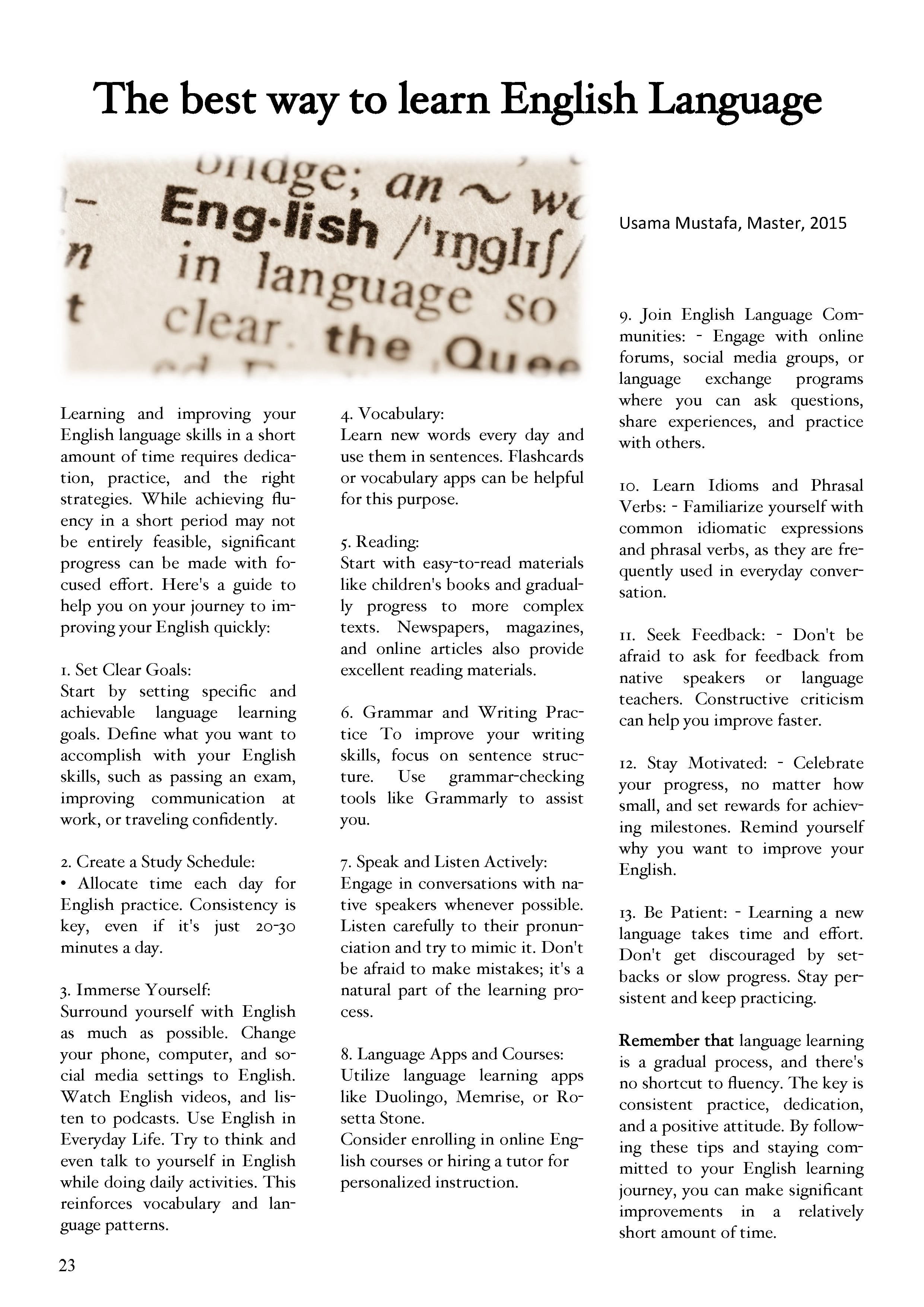The best way to learn English
Home / Newsletter /
The best way to learn English Language
Learning and improving your English language skills in a short amount of time requires dedica-tion, practice, and the right strategies. While achieving flu-ency in a short period may not be entirely feasible, significant progress can be made with fo-cused effort. Here's a guide to help you on your journey to im-proving your English quickly:
1. Set Clear Goals:
Start by setting specific and achievable language learning goals. Define what you want to accomplish with your English skills, such as passing an exam, improving communication at work, or traveling confidently.
2. Create a Study Schedule:
• Allocate time each day for English practice. Consistency is key, even if it's just 20-30 minutes a day.
3. Immerse Yourself:
Surround yourself with English as much as possible. Change your phone, computer, and so-cial media settings to English. Watch English videos, and lis-ten to podcasts. Use English in Everyday Life. Try to think and even talk to yourself in English while doing daily activities. This reinforces vocabulary and lan-guage patterns.
4. Vocabulary:
Learn new words every day and use them in sentences. Flashcards or vocabulary apps can be helpful for this purpose.
5. Reading:
Start with easy-to-read materials like children's books and gradually progress to more complex texts. Newspapers, magazines, and online articles also provide excellent reading materials.
6. Grammar and Writing Practice To improve your writing skills, focus on sentence structure. Use grammar-checking tools like Grammarly to assist you.
7. Speak and Listen Actively:
Engage in conversations with native speakers whenever possible. Listen carefully to their pronunciation and try to mimic it. Don't be afraid to make mistakes; it's a natural part of the learning process.
8. Language Apps and Courses:
Utilize language learning apps like Duolingo, Memrise, or Ro-setta Stone.
Consider enrolling in online Eng-lish courses or hiring a tutor for
personalized instruction.
9. Join English Language Com-munities: - Engage with online forums, social media groups, or language exchange programs where you can ask questions, share experiences, and practice with others.
10. Learn Idioms and Phrasal Verbs: - Familiarize yourself with common idiomatic expressions and phrasal verbs, as they are frequently used in everyday conversation.
11. Seek Feedback: - Don't be afraid to ask for feedback from native speakers or language teachers. Constructive criticism can help you improve faster.
12. Stay Motivated: - Celebrate your progress, no matter how small, and set rewards for achiev-ing milestones. Remind yourself why you want to improve your English.
13. Be Patient: - Learning a new language takes time and effort. Don't get discouraged by set-backs or slow progress. Stay persistent and keep practicing.
Remember that language learning is a gradual process, and there's no shortcut to fluency. The key is consistent practice, dedication, and a positive attitude. By follow-ing these tips and staying com-mitted to your English learning journey, you can make significant improvements in a relatively short amount of time.

